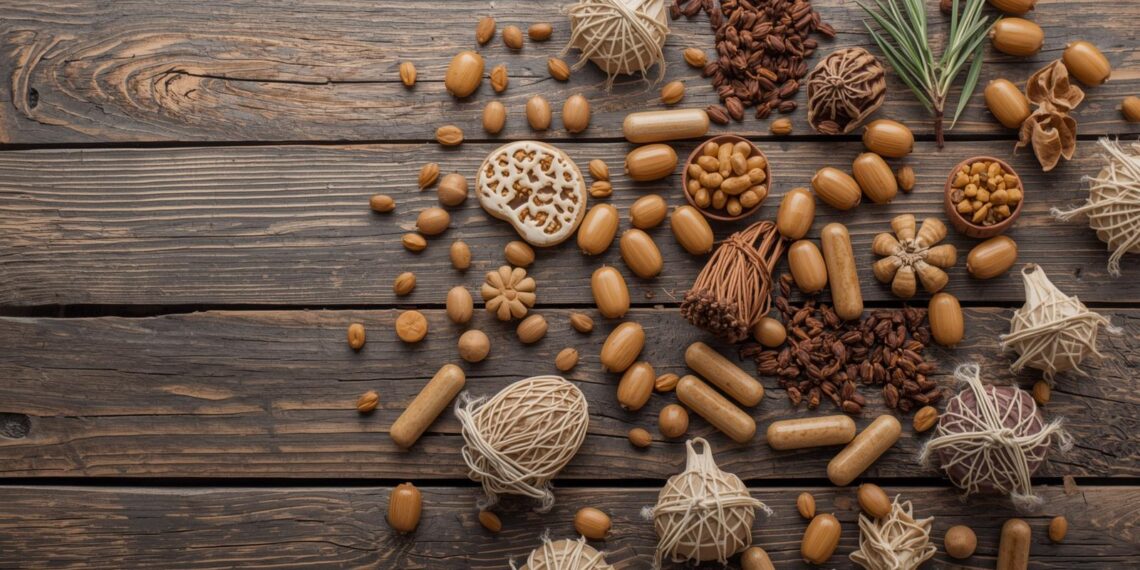In the quest for holistic wellness, many individuals turn to herbal supplements, often believing them to be a natural and safe alternative to conventional medicine. However, the allure of these remedies, particularly those claiming to detoxify the liver, can sometimes overshadow the potential risks they pose.
The liver, a vital organ responsible for detoxifying the body, can be adversely affected by certain herbal supplements. This article sheds light on the risks associated with herbal supplements, emphasizing the need for informed choices.
The liver is a powerhouse, performing over 500 functions, including filtering toxins from the blood, producing bile for digestion, and storing nutrients. Its ability to regenerate is remarkable, but it isn’t invincible. Prolonged exposure to harmful substances can lead to irreversible damage.
The Appeal of Herbal Supplements
Herbal supplements often promise to enhance liver health by “detoxifying” and “cleansing” it. These claims are tempting, especially for individuals seeking natural health solutions. However, it’s crucial to scrutinize these promises, as not all supplements are beneficial.
Herbal Supplements and Liver Damage
While many herbal supplements are safe when used appropriately, some can cause significant liver damage. Understanding which supplements pose risks is essential for making informed decisions.
Common Culprits: Herbal Supplements Linked to Liver Damage
Here is a list of herbal supplements that have been associated with liver damage:
- Kava: Often used for its calming effects, Kava can lead to severe liver damage if consumed in large quantities or over extended periods.
- Black Cohosh: Commonly used to alleviate menopausal symptoms, it has been linked to liver failure in some cases.
- Green Tea Extracts: While green tea is generally safe, concentrated extracts have been associated with liver toxicity.
- Pennyroyal: This herb, sometimes used for digestive issues, can cause severe liver damage and even liver failure.
The Misconception of Liver Detox Supplements
Liver detox supplements are marketed as a means to cleanse and rejuvenate the liver. However, the liver is naturally capable of detoxifying itself. These supplements can sometimes do more harm than good, particularly if they contain high levels of potentially toxic herbs.

Recognizing the Signs of Liver Damage
Understanding the symptoms of liver damage is crucial for early intervention and treatment. Common signs include:
- Jaundice (yellowing of the skin and eyes)
- Fatigue and weakness
- Dark urine
- Abdominal pain and swelling
- Nausea and vomiting
If you experience any of these symptoms while taking herbal supplements, it is imperative to consult a healthcare professional immediately.
Making Informed Choices
Consult with Healthcare Providers
Before incorporating any herbal supplement into your routine, consult with a healthcare professional. They can provide insights into potential interactions with medications and assess the risk of liver damage based on your health history.
Research and Verify
Do thorough research on any supplement you consider using. Look for studies and reviews from credible sources. Verify claims and be wary of supplements that promise miraculous results.
Prioritize Quality and Transparency
Choose products from reputable companies that provide transparency about their ingredients and sourcing. Quality control is crucial in ensuring that supplements do not contain harmful additives or contaminants.
Embracing a Holistic Approach to Liver Health
While herbal supplements can be part of a wellness plan, they should not be the sole focus. Embracing a holistic approach to liver health involves lifestyle changes that support overall well-being.
Balanced Diet
A diet rich in fruits, vegetables, whole grains, and lean proteins supports liver health. Foods like leafy greens, citrus fruits, and nuts are particularly beneficial.
Regular Exercise
Exercise enhances blood flow and boosts the immune system, aiding the liver in its detoxification processes.
Moderate Alcohol Consumption
Alcohol is a major contributor to liver disease. Moderation is key to preventing liver damage.
Avoiding Toxins
Limit exposure to environmental toxins, such as pesticides and chemicals, which can harm the liver.
Conclusion: A Thoughtful Journey to Wellness
In the serene pursuit of wellness, understanding the risks associated with herbal supplements is crucial. By prioritizing informed choices and embracing a holistic lifestyle, you can protect your liver and enjoy the benefits of good health. As you navigate the world of natural remedies, remember that simplicity and moderation often lead to the most profound and lasting results.
Your liver, much like the understated luxury of a remote island destination, thrives on balance and authenticity. Embrace this journey with an open heart and a discerning mind, ensuring that your health choices are as enriching as your travel adventures.




